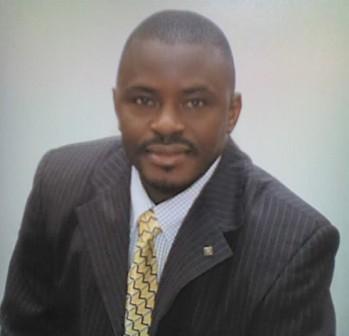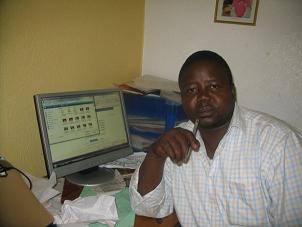The Côte d’Ivoire crisis: The mistakes and what lessons can be learned
Imagine “WikiLeaks” having access to the current thinking of Western diplomats regarding the stance of African Leaders on the crisis in Côte d’Ivoire,  and making it public. Would you be surprised that the thinking will be one of ridicule, disdain, and a feeling of great accomplishment on their part, in that they have been able to get African Leaders to awkwardly carry out their bidding? Though this scenario is hypothetical, it may well not be far from the realistic picture, at least judging from the contents of recent leaks.
and making it public. Would you be surprised that the thinking will be one of ridicule, disdain, and a feeling of great accomplishment on their part, in that they have been able to get African Leaders to awkwardly carry out their bidding? Though this scenario is hypothetical, it may well not be far from the realistic picture, at least judging from the contents of recent leaks.
Apparently, the received opinion on the current crisis is that, no well-meaning African should support a stance that tends to back Laurent Gbagbo’s (in photo) attempt to thwart the democratic process. Fair enough, it is what is expected of all who want to see a renaissance on the continent. Gbagbo is certainly not a democrat, and the perceptions of him being corrupt have further helped to tarnish his image. But Africa is still riddled with the likes of Gbagbo. He is just unlucky that the spectre of “bad luck” has visited him this time. Having said that, I also think the position of the African Leaders is unwarranted, inapt and a dangerous one which will come to hunt them for a long time.
In an attempt to prove to the “West” that their democratic credentials have improved, we have seen them “fall over backwards” in the last few weeks. And at no time in recent years, have they shown so much naivety and lack of judgment, as they have displayed in the case of Ivory Coast. They have made a number of fundamental mistakes that have made the situation very complicated.
First, was their mistake to back the stance of the United Nations (UN), which serves the purposes of richer nations, more than the developing world. Their call for Gbagbo to give up power or face the wrath of force, instead of them pushing for a negotiated settlement, was like putting the cart before the horse. Were they unscrupulously led to legitimize a scheme carefully designed in Western capitals, perhaps Paris? You work it out. I do not know of any post-conflict country, where elections were conducted under the watchful eyes of the UN, without a rigorous process of disbarment, save for Côte d’Ivoire. And it seems there was a foregone conclusion that, the only acceptable election result, will be one that delivers an opposition victory. This is not surprising in that, there is a pervasive belief on the continent that most governments are unpopular, and given a “free and fair” electoral contest, the opposition will always win. This is a fallacy that needs to be discouraged.
Second, of all people the African Union named as its mediator, the prime minister of Kenya Raila Odinga, who had called for a military intervention to forcibly remove Gbagbo. I still cannot understand the thinking processes that informed such an appointment, as Odinga is clearly not an impartial arbiter, since he had already taken sides. Discussions between him and Gbagbo will definitely produce little or nothing. Also, not much is expected from the trio of West African Leaders, who have been to the country in the last two weeks, because theirs has only been to deliver an ultimatum which Gbagbo will certainly not accept.
It would have been better for African leaders to approach the dispute with an unbiased stance, considering all options, including the much loathed “power sharing” arrangement. It is clear that many of us do not like “power sharing”. But what is the alternative? Outright war? It has not worked well in Zimbabwe and Kenya, but it has maintained some amount of peace and stability, when the alternative would have been all-out war.
It would seem that, the aim of the African leaders is to set precedence that, politicians should not use the back door to power. But they are doing so in a hurry, with the wrong approach and in the wrong circumstance. Every case should be judged and assessed based on its own unique features. Unlike Zimbabwe and Kenya, where there were outright winners, the election results in Côte d’Ivoire were almost “50-50”, with Gbagbo even winning the first round. And we should not be oblivious of the fact that, the country is already split along regional and ethnic lines, a situation that could be assuaged by an inclusive government. For goodness sake, even Britain has a “power sharing” government between the conservatives and the Liberal Democrats. And so are many countries.
The threat of the use of force to forcibly remove Gbagbo will be a precedence that will be hard to replicate and sustain. Once it is set in motion, it will only be fair that a standby “electoral dispute intervention” force be established, to do the same in similar circumstances in the future. And on a continent where elections have become instruments of disorder, with politicians going into the contest with a “do or die” attitude, we may just see many more interventions. Unpopular leaders will not be deterred to rig elections by the use of force. This is simply because they know African states do not have the financial and material wherewithal to sustain it. This is why I believe, the threat to forcibly remove Gbagbo is nothing more than a bluff, which he is not heeding. Significantly, this will further dent the Economic Community of West African States’ (ECOWAS) image. This reminds me of an uncle, who once told me that “you should never promise your child a snake, when you know you cannot provide it”.
What needs to be done is not to break down under the heavy expectations of the West. This is time for our leaders to maintain a calm disposition and not react spontaneously. It is unfair that Africa is expected to develop functional political institutions overnight, while it took Western nations centuries to evolve them. We should be able to manage the expectations of outsiders. There should be no “quick-fix” solutions to problems that have persisted for decades, if not centuries.
The recurrent problems of election disputes in many countries may be symptomatic of flaws in the political systems themselves, which often come to the fore only during elections. Perhaps we should be considering electoral reforms that reflect each country’s peculiar context, rather than looking to the West for models.
The Democratic Republic of Congo is considering doing away with the second round of elections. Whether the leaders are doing it for political reasons or not, is unclear. But it is such debates that should be taking place on the continent. Why are elections instruments of disorder in Africa? Is a parliamentary system more adaptable to specific country contexts, than a presidential system? How can we make elections less violent? Or, do we really need elections in Africa? If not, what are the alternatives? These and many other pertinent questions are what we should be trying to find answers to, rather than breaking under psychological pressures from the West, during times when stead heads are needed.
Felix Marco Conteh, School of Oriental and African Studies, University of London, UK
Stay with Sierra Express Media, for your trusted place in news!
© 2011, https:. All rights reserved.







esso
/
France’s military intervention under the guise of rebellion.
8th January 2011All military ballet of the French army on the Ivorian territory has a single goal: to equip the fighters of the rebellion in the north and the 300 elements entrenched in the Golf Hotel to open several fronts, according to a source within of the DGSE, the French secret service. This source indicates that the French army “will operate as it did in Chad Idriss Deby” if the African leaders renounce the military option against Gbagbo, Nicolas Sarkozy called for all his vows. This is for men to Sarkozy, on the ground in theater in the shadow of the “army of Ouattara north and the Hotel du Golf,” to create a gateway to promote its progress towards the palace and RTI.
In this context, emissaries were sent to the warlord “courageous,” Zakaria Koné, Burkina Faso to get back on the front line. Turning to the rebellion entrenched at the Hotel du Golf, if they manage to find their way into the furnace of the Republican Defence Forces and Security through support of the French Licorne force, will be presented as elements of Republican forces, loyal to President Laurent Gbagbo, which have shifted in favor of the new president Alassane Ouattara. Hence the new communication strategy of Ouattara and Soro who say their candidate, entrenched in the resort, had the support of Republican Forces in more than 60%. One way to legitimize the taking of public buildings and a possible rallying support at the appropriate time with a speech that befits the context and will be widely echoed by some Western media.